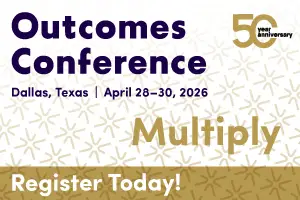

Can an executive leader love an organization?
Smarmy and pledged affection for spicy chicken sandwiches, toilet paper, or a preferred brand of coffee, which is not the definition of love in this question! Also, not in play is a type of pseudo-love that confuses the self with the object of affection. It is not an attempt to conquer and dominate or think that lust is an end in itself. There are plenty of executives who pseudo-love their organizations in these ways.
Branding expert Chuck Kent once took on brand usage of the word love in an excellent and thoughtful blog I can no longer find. What was intriguing was what he wrote about the proper use of love when referring to a thing: when it conveys a sense of actual emotional attachment to human experience.
Biblical Love
I am asking whether the executive can love as the apostle Paul suggests. Love as a sacrifice, working for another’s best interest, traveling alongside others as they grow, and walking the healthy path between distance from and enmeshment in a team of colleagues. In this sense, love reflects the spirit of Paul’s words about love in his first letter to the Corinthians—a passage read at many a wedding—but intended as a passage about how people in a larger community of faith are to work together.
“Love is patient and kind, never jealous, boastful, proud, or rude. Love isn’t selfish or quick-tempered. It doesn’t keep a record of wrongs that others do. Love rejoices in the truth but not in evil. Love is always supportive, loyal, hopeful, and trusting. Love never fails! “
I Corinthians 13:4-8a
Is It Possible?
Asking the question again, and with Paul’s definition of love in mind, can a leader love an organization? Someone might say no, but allow a leader to love the people or the organization’s mission. That sentiment gets no argument from me. Without people or a cause to rally around, organizations are essentially dead. Who wants to be known for loving a corpse? It’s the love for the people and the mission that breathes life into the organization, and it’s this love that makes us integral to its success and increases our struggle to step away at a healthy time.
The Outcomes
Because they love it, the accomplished executive leader will suffer as they step beyond their role into what is next. We once called it what is next in life to go to. Better said, it is the life to grow to.
Time To Step Away
Stepping away, the executive leader will carry their grief and the sorrows expressed by others. We who have led this way will more easily perceive those sorrows as tied to new and lessened access to people and what we could do together. We do not so quickly perceive this grief as coming from an almost surgical reduction of our identity. We aren’t just growing beyond or into something new. We are growing something back out of what is being reduced and removed.
Go and Grow
Growing into what is next will be hard work. It is why we built Maestro-level leaders—a deliberate experience to help us slingshot successors toward more of the mission, make our own painful and needed adjustments and recognize or create a life to go and grow, too.
####
ᐧDr. Mark L. Vincent is the Founder of Design Group International and the Society for Process Consulting. He hosts the Third Turn Podcast and facilitates Maestro-level leaders. Discover the Maestro-level cohort that is waiting for you! Click the banner below to learn more!

We are building the next cohort for CLA members, intending to launch by October 2025.
Now is the time to indicate your interest! Contact Kirk Kriegel to get started!

Featured Articles
CLA Membership
Join Christian
Leadership Alliance
A commitment to membership unlocks a more comprehensive access to content, community, and experiential learning. Here are the three membership exclusives that exist to significantly accelerate your professional growth and personal development.








